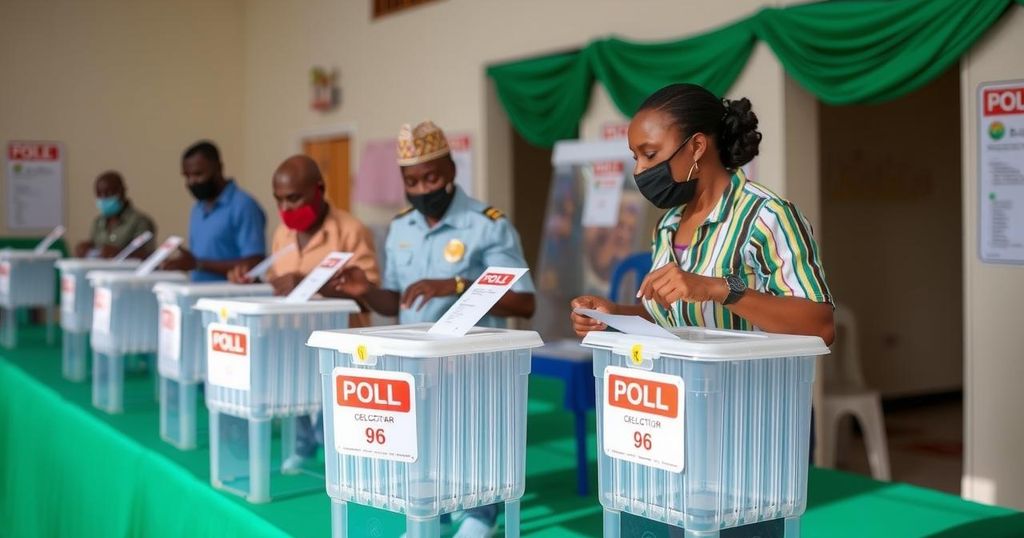Comoros Voters Elect Parliament Amid Allegations of Authoritarian Governance

Voters in Comoros are electing representatives for a 33-seat parliament, amidst allegations of prior electoral misconduct under President Azali Assoumani. Approximately 338,000 individuals are registered to vote, with nearly 100 candidates contesting. Opposition figures express concerns about the regime’s authoritarian tendencies and the potential for dynastic succession. Results are expected by Friday.
On Sunday, voters in Comoros cast their ballots to elect representatives for the country’s 33-seat parliament. This election follows President Azali Assoumani’s controversial re-election last year, which the opposition claims was marred by significant electoral misconduct. The ruling party has consistently dismissed these allegations. Approximately 338,000 registered voters participated in the election, marking the first parliamentary elections since January 2020. Nearly 100 candidates were nominated by the Supreme Court to stand for election.
Assoumani’s leadership, which began in 1999 through a coup, has been characterized by accusations of authoritarianism, with concerns regarding his intentions for his son, Nour El-Fath, to succeed him in 2029. In 2024, Assoumani granted his son extensive powers to oversee government operations. Certain opposition parties, including the Juwa party led by the incarcerated former President Ahmed Abdallah Sambi, have advocated for a boycott of the elections. In contrast, some members have chosen to participate, viewing their engagement as a means to uncover the regime’s weaknesses. Hamidou Karihila, a candidate from the opposition Hope of the Comoros party, emphasized the potential for this election to reveal systemic flaws in Assoumani’s governance.
Results from the election are anticipated by Friday, signifying a critical juncture in the political landscape of Comoros as it approaches another chapter in its governance history.
The political landscape in Comoros has been tumultuous, particularly under President Azali Assoumani, who has been in power since 1999. His coming to power through a military coup has raised numerous concerns regarding democratic integrity and governance in the archipelago. The previous parliamentary elections occurred in January 2020, amidst claims of electoral anomalies. Assoumani’s governance style has also been portrayed as increasingly authoritarian, sparking fears of dynastic succession regarding his son, who was recently empowered to coordinate government affairs. The split among opposition parties regarding their approach to the elections highlights the charged atmosphere leading up to this electoral event.
The parliamentary elections in Comoros represent a pivotal moment for the country’s democracy, challenged by allegations of authoritarianism and potential familial succession. While some opposition factions advocate for a boycott, others believe that participation is essential to reveal and contest the ruling regime’s deficiencies. This election will test the resilience of both the existing administration and the opposition as the nation moves towards revealing the electoral outcome later this week.
Original Source: www.stawelltimes.com.au







